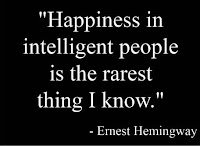People in love often say "I can't live without you", but life is never in our full control that sometimes leaving someone we love, or being left by someone we love is inevitable. Words matter and what we say to our partner, or our own self give us and our partner suggestion on how to react and respond if such situations happen. Saying "I can't live without you" can be perceived in a positive way, for example a deep attachment to the loved partner, but it also suggests the idea of dependence that may make the leaving partner feel guilty, in addition to the sadness that they may have already felt with their decision to leave. Such guilt may or may not become related to his/her own sense of self (e.g. feeling that one is an irresponsible person), although perhaps the person who said that did not mean for it to be that way. But one can never tell what these words may lead to.
On the other hand, for the person who said so, while those can be perceived as an expression of love, if they were taken seriously, those words can also indicate that he or she is vulnerable, psychologically speaking. What I learned from psychology classes is that a healthy relationship comes from the union between two independent individuals; not two dependent individuals. Of course, having a partner can be a boost to self-esteem but it should not be considered as a channel to enhance one's self-esteem in the first place. Check out this video of one of the most prominent figure in developmental psychology and psychoanalysis, Erik Erikson, talking about intimacy vs. isolation, the common crisis faced by young adults which is related to intimate relationship:
As shown in the video, in healthy intimate relationships people fuse their identity with somebody else's, without fear of losing themselves, but also not because they want to find their identity in somebody else. In order for a relationship to be healthy one should be comfortable in it, and by being comfortable it means that one can express themselves freely. The problem of trying to find one's identity in somebody else is that one can never be oneself and therefore cannot function well in the relationship, because there never was a firm self to begin with. I guess people like that will be pretty difficult to understand, but one thing that is clear is that they will get depressed as soon as the partner removes him/herself from their side.
Of course, losing someone that we love is very heartbreaking; I've been through that a few times, but then it is a solid fact that life does not stop, and should not stop, there. It is the moment where the firmness of our identity is challenged, and it can be determined by what we say about it. In this case, "I can't live without you", if put seriously, is a bad response, whether the cause of the separation is in the couple's control or out of it (e.g. death). While the latter can make a profound impact on the succession of the grieving process, the first relates to the success of the relationship itself. A relationship should make people feel good about themselves, and by generating guilt toward one's partner from saying so means that one has made another feel bad about themselves. "No one stays in love by chance, but by work", so in order for a relationship to work one has to work it out, and by working it out it means one must have already the willingness to do so. So basically the relationship itself is about choice; a choice to be in the relationship and to stay in it; it is about whether one wants to be, not one supposed to be. It is not that one can't live without the other, but that one don't want to live without the other. There is a crucial difference between the two: while the first may show how one demands the other to stay as an obligation, the latter show how one wants the other to stay if the other wants to stay too - giving the other a freedom to choose with nothing to lose. It is therefore a mature expression of love, where one can give and take willingly, not forcefully.
Nobody likes to be forced. When we were being forced to obey some rules during our childhood period it is because it's the only way for us to behave safely, for our brain is still too young to understand why things work around us. But when we are adults, aren't we supposed to take responsibilities on our own selves and take care of it? That is why negative responses can be given to "I can't live without you"; it is an inappropriate beg; a beg that perhaps can only be given appropriately to parents by their children and thus making it a childish beg. Clearly, healthy romantic relationships should be equal so no burden is felt between the couple; both partners take responsibility toward themselves as well as taking care of each other. In this kind of relationship, both can live without each other; only that they don't want to.
 |
| "I can live without you. I just don't want to." --Jennifer Aniston in Rumor Has It (2005 film) |
Note: Move cursor to the image to see the image source.




